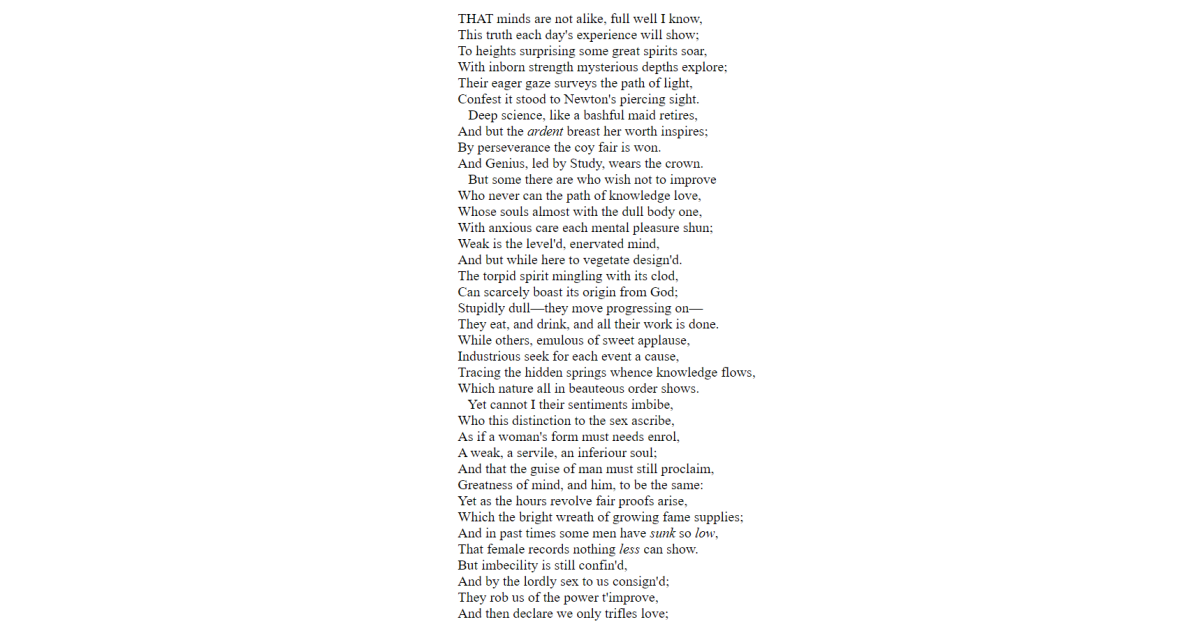I always tend to find myself coming back to this poem. Ever since I found the courage to pick up the book and regain my love of reading, I’ve begun to remember those novels, stories, and poems that were the catalyst for all my endeavors. This specific poem resonates within me, drawing out that fiery side of myself that I always seem to forget exists until it had bubbled up to the surface, unable to be kept down any longer. Judith’s fire that she writes with is something that I’ve always wanted to be able to emulate and bring into my own life. It is a passion that seeps through every word and stanza, unbridled by fear of reprisal or denigration. It is so very American. These American women seem to have no fear, and in this facet, I wish to be American. The fact that this scathing poem about women’s treatment was written so long before I was born never ceases to amaze me. That in America women like Judith, even almost a century ago had the freedom to publish such a contentious piece of writing. It makes me yearn for a different life in a different place. But I know I could never abandon my sisters and what we’ve built and achieved here. I always remember this poem when I’m faced with another obstacle created by other people's view of me simply as a woman. I wasn’t put here on Earth just to be some man’s inferior other half.
Editorial Commentary:
What we find here is an interesting case of commonalities between two people separated by decades of time, yet feel very similar in the passion with which they speak. In an age where not many women have the courage to speak out against the injustices perpetrated against them, these are a rarity. Judith Murray’s poem is, in itself, a momentous work of authorship, something that could probably only have been written in someplace as free and in as much cultural upheaval as the first years of the United States. Following its independence from England, The United States fashioned its fledgling government in reflection of the culture that had been built. A culture based on freedom of speech, religion, and justice. Although it did not include women and people of color as of yet, the groundwork was laid for the future expansion of suffrage. But more importantly, the society encouraged everyone to voice their opinions, in order to differ from their former masters. What Murray attempts to illustrate in the minds of anyone reading this poem is that she believes most men continue living their lives unbridled by the thought that women should have anything more than their lot in life. She strongly believes that this is because they have become complacent in their pursuit of the betterment of society, which includes bringing up women as equals instead of inferiors. Gertrude Lorimer seems to agree. From what little we can infer from this passage, we can tell she is the embodiment of a good bit of what Murray was trying to say about the condition of women of her time. And it is not until many years later that her hopes come to fruition, that women like the one referenced above have the courage to stand up for themselves and make something of their lives other than what is allotted to them and expected of them.
Citation:
Murray, Judith Sargent. “On the Equality of the Sexes.” The Massachusetts Magazine, 1790, p. 132.


